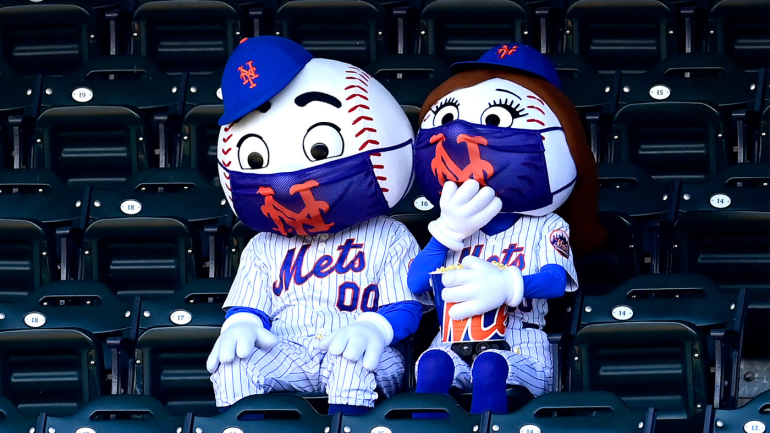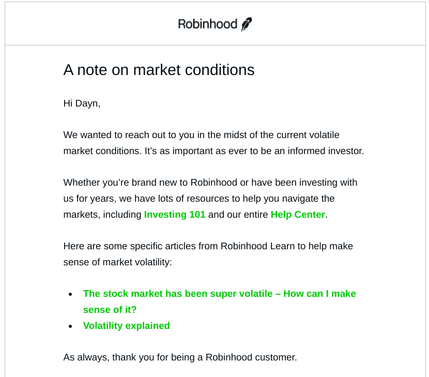
In matters of This, Our Baseball, the answer to the question, "What is the source of this fresh, probably self-defeating buffoonery?" is reliably, "The New York Mets." So it is with the gripping tale that involves a bunch of pallid Reddit bedlamites pantsing one or more multi-billion-dollar hedge funds to the brink of financial ruin.
At this point you are likely wondering what this is all about and how it came to involve the Mets. Because we are of, for, and by the people, we're here to help. Please divert thine gaze while we slip into our Breeches of Internet Wisdom … and now let us proceed, FAQ style.
Why are we talking about GameStop in 2021?
GameStop, you'll recall, is the brick-and-mortar video game and gaming merchandise retailer. Once a thriving chain, GameStop has suffered badly since the market shifted from physical video games to digital downloads, losing more than $400 million in 2019 and then announcing the planned closure of 300 stores. And then the global pandemic hit.
Not very long ago, GameStop in response to these grave challenges shuffled its corporate board and made some changes to the business model. As a result, the stock price began rising (albeit not on a scale that's anything like what's happening now). A number of investors saw this, ascertained that GameStop's outlook was still grim, and began shorting the stock in large numbers.
What is "shorting" stock?
Shorting is betting that a stock will decrease in price as opposed to the usual manner of investing, which is to bet that a stock or a fund or whatever will increase in share price. Shorting is by far the less common approach, which is why most of us get happy when market indices are up.
Basically, shorting or short-selling involves borrowing shares of a stock and then selling them right away. At an agreed upon date, the investor buys those shares back and returns them to the from where they were borrowed. For example, if you borrow shares and sell them at $5 and then buy them back at $3 and you've made $2 per share. Misread the market and buy them back at $7 per share and you've lost $2 per share.
Related to all of that is the GameStop stock. As recently as Aug. 10 of last year, the stock was trading for a meager $4.33 per share. As recently as Jan. 12 of this year, it was trading for $19.95 per share. As of the close of trading on Wednesday, however, GameStop stock was going for -- bang a gong -- $347.51 per share (!!!). Nothing has changed about the troubling fundamentals of the GameStop business model, but the stock is now going where not even the stocks of eagles dare.
To fully appreciate the dimensions of this madness, please look at the stock price chart for the last five days alone:
Hello. I'm tweeting out this five-day graph of the GameStop stock price so I can easily embed it. As you were. pic.twitter.com/QoCsV3WxFU
— Dayn Perry (@daynperry) January 27, 2021
Beautiful or tragic, depending upon your market positions, but absurd from any standpoint.
Wait, isn't it good when stocks go up?
Hoss, this is good stuff unless you're in one of two demographics -- those who shorted GameStop stock or those obsequious valets to high finance who host shows with names like "Market Lunch" or "Stockortunities" or "Fatso Cash Hour" on this or that cable business network and wring hands when the elites of this ecosystem are inconvenienced in any way. In this particular romp, it's those short-sellers, many of them institutional investors, who are of particular interest. Those who, say, shorted GameStop back when it was going for $39.12 barely a week ago are now facing losses of an unimaginable scale.
Specifically, a hedge fund named Melvin Capital, which has shorted aggressively in its young existence, was heavily exposed in the GameStop surge. Gabe Plotkin, the founder of Melvin Capital, closed out his GameStop action on Tuesday at a massive loss. How massive? The grim and or amusing particulars aren't known, but Plotkin and his fund required a huge cash infusion of $2.75 billion -- with a "B" -- from two other hedge funds. Plotkin has denied that bankruptcy is in Melvin Capital's future, but without question he took a vigorous beating thanks almost wholly to a slapdash coalition of small-time retail investors.
You mentioned Reddit?
Yea and also verily. Largely, a grassroots movement that began in the r/wallstreetbets subreddit saw an opportunity based on the premise that GameStop was being "over-shorted." On some other level, there was the plucky appeal of a bunch of internetters ritually abusing these hulking Wall Street institutions at their own game and, you know, the feral love of chaos you find deep within places like Reddit. On that latter point, know that r/wallstreetbets carries the description, "Like 4chan found a Bloomberg terminal illness."
All those Redditors in essence made a meme out of the GameStop stock, and enthusiasm for the once moribund holding spread like a case of the clap at a key party. The collective movement to buy the stock on commission-free trading platforms like Robinhood was such that, well, let's look at this again:
Hello. I'm tweeting out this five-day graph of the GameStop stock price so I can easily embed it. As you were. pic.twitter.com/QoCsV3WxFU
— Dayn Perry (@daynperry) January 27, 2021
Ironically placed buy orders are still buy orders. Anyhow, "Take this short and shove it," is basically what those casual investors said and then perpetrated at the expense of some industry titans. You don't have to be a doctrinaire populist to appreciate the comedy of it.
And now for a related dispatch that dropped on Wednesday, awash in understatement and subtext:

Volatility indeed. In the gif to follow, the Robinhood app is Kyle MacLachlan in a cowboy hat and tickler, and the buccaneering investors working over the hedge fund are the dyspeptic cat:
"Don't screw around get us regulated to the margins of the sector," the Robinhood app as represented by Kyle MacLachlan in a cowboy hat and tickler is perhaps saying to the buccaneering investors working over the hedge funds as represented by the dyspeptic cat.
So what does this have to do with the Mets?
Recall how we said that Plotkin and Melvin Capital needed a huge cash infusion. Part of that cash came from Point72, the hedge fund of Mets owner Steve Cohen. Plotkin once worked for Point72 and Cohen, which helps explain why Cohen was willing to cast a lifeline. Cohen said in a statement:
"I've known Gabe Plotkin since 2006 and he is an exceptional investor and leader. We are pleased to have the opportunity to invest additional capital and take a non-controlling revenue share in Melvin Capital."
His rescue investment was sizable -- reportedly $750 million --- and according to the New York Times Point72 already had $1 billion invested with Melvin Capital. In large measure, that's why Point72, again per the Times, is already down 15 percent this year. As such, it wasn't hard to find doom-soothing such as this:
New Mets owner Steve Cohen had to bail out Melvin Capital because a bunch of stock trading kids on Reddit massively pumped up GameStop, putting Melvin's $13 billion at risk of disappearing.
— Mike Masnick (@mmasnick) January 27, 2021
If that leads to the Mets cutting payroll, it would be the most Mets story ever.
Given dark memories of the Wilpons, Cohen's predecessors in the owners' box, and how their Bernie Madoff-related financial hemorrhaging caused them to neglect the team, Mets fans are probably recoiling in terror from this prospect. But they probably shouldn't fret. Please ask the obvious question, imaginary interlocutor.
Will this actually affect the Mets?
The semi- to quasi-informed guess here is "probably not." Actually, why don't we let Cohen himself address this matter via the esteemed medium of media sociale:
Why would one have anything to do with the other
— Steven Cohen (@StevenACohen2) January 27, 2021
Responding to a question with a question isn't tantamount to answering it, but the implication is that there's a firewall of sorts between the Mets' finances and Cohen's other business interests. This squares with what Cohen said at the outset of his tenure when he emphasized that he wouldn't be looking to the Mets as a source of income. Given that he's got a net worth of $14 billion or so, that story checks out.
The proof, of course, will be in the roster pudding. If the Mets, as rumored, mount a vigorous pursuit of Trevor Bauer and wind up signing Francisco Lindor to an extension before spring training drops, then it's a sure sign that Cohens' second-hand entanglements in the GameStop imbroglio haven't compromised the Mets' operations.
Next time, though, perhaps hedge fundies should take care not to accidentally poke the Reddit bear. Or bull, it would seem.


















